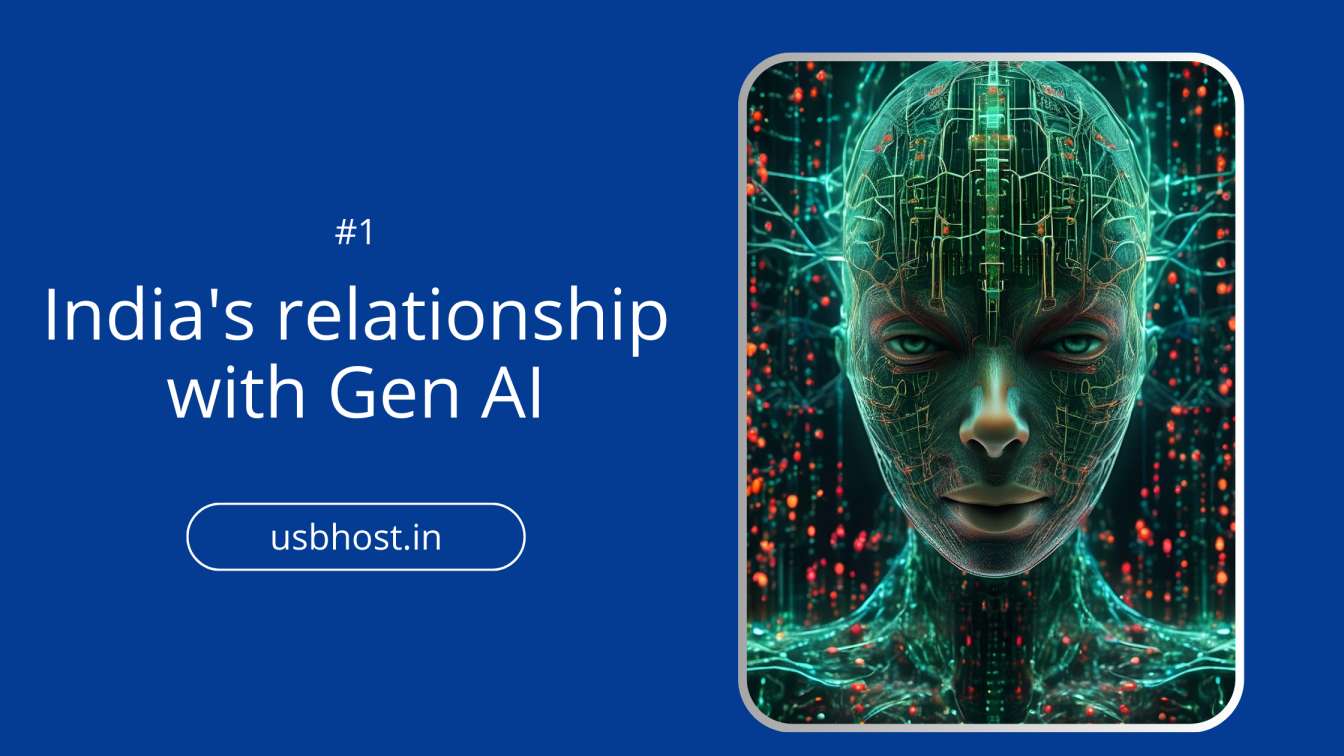Explore the complex interplay between India and General AI by considering questions of colonial legacies, contemporary challenges, and the transformative potential of this generational opportunity.

From the beginning of civilization to the modern era, human progress has been marked by giant leaps in innovation. The cornerstone of transportation, the wheel, evolved over millennia, culminating in the miracle of the bicycle, gas-powered cars, and the space shuttle. Every progress came at a cost, with countless lives lost in the pursuit of discovery. But what if the wheel itself could learn, adapt, and evolve? The beginning of Generation Artificial Intelligence, entered General AI. With the ability to learn from diverse sources and computational prowess, the “smart wheel” promises to accelerate progress exponentially. India stands at the forefront of this transformative technology, ready to harness its potential for unprecedented progress.
GenAI is a pioneer in “deep learning” and autonomous problem-solving by independently navigating vast data fields. Unlike traditional automation, it continually expands its domain, representing a significant departure from previous innovations. This development marks a paradigm shift in technology, promising unparalleled advancements and reshaping human-machine interaction.
- It can “think” and make decisions on its own.
- It can bring new ideas
- It can be easily integrated into the daily lives of “normal” people who converse in natural languages
- It will continue to expand the scope of what it can do
- As it “learns” it will continue to accelerate its growth.
The reach of GenAI will reach every aspect of the industry, reshaping sectors ranging from finance to entertainment, healthcare, agriculture, and environmental protection. Traditional white-collar jobs are facing unprecedented displacement as the impact of GenAI extends across three major domains, ushering in a new era of technological advancement and social change.
Chatbots are revolutionizing customer service, dominating primary interactions with their increasing sophistication, signaling a transformational change in the way businesses engage with their customers.
Harnessing the power of research, innovation, and creativity facilitates more eureka moments while extracting patterns from disparate data sets, giving rise to innovative ideas and reducing the burden of repetitive errors.
Revolutionizing production and process optimization involves creating innovative patterns that challenge traditional practices. The sudden termination of software contracts with major IT companies serves as a warning signal, highlighting the growing existential threat to traditional business models in the face of rapid technological progress.
The financial impact of GenAI looks huge, with McKinsey predicting a potential annual increase of $4 trillion to the global economy, which is probably a conservative estimate. By 2030, it is projected to contribute $1.5 trillion to India’s GDP, attracting substantial investment. The US government allocated $1.7 billion and $1.1 billion in non-defense and defense budgets in 2022, respectively. Private investment increased, increasing nearly 20-fold from 2013 to 2022. In 2023, investments led by tech giants like Amazon reached nearly $27 billion. Microsoft, and Google, underline the growing interest and confidence in the transformative potential of GenAI and its associated fields.
India faces a turning point: either embrace progress like the Industrial Revolution or risk falling victim to exploitation like the colonial powers. History has shown how technology investment reshapes global power dynamics. Failure to invest could push India into the status of an exploited colony, highlighting the imperative of decisive action to secure its future and economic sovereignty.
The adoption of GenAI reflects the strategic advantage gained by Arab countries through oil exploration. Just as control of crude oil propelled them to economic dominance, a substantial stake in GenAI promises the same kind of power. Achieving global GenAI dominance requires abundant data, skilled manpower, and capital, all of which India has. Coincidentally, India’s data and human resources are well suited to the potential of harnessing GenAI, while its oil reserves provide a viable opportunity to meet capital needs, placing the country at the forefront of this transformative technology.
Realizing the magnitude of GenAI potential, India must develop an ecosystem to leverage it. Notably, NITI’s AI strategy ignores large language models (LLMs), which are critical to GenAI’s progress. The absence of indigenous LLMs highlights the worrying lack of long-term self-reliance. This highlights the challenge of strategizing GenAI without substantial private entities or a strong military-industrial complex, underscoring the urgency of comprehensive planning to navigate this transformative landscape.
So, what are the specific tasks for us?
- Assessing our assets includes leveraging our vast pool of engineers and scientists who are ready to optimize for GenAI tasks. Furthermore, India’s abundant data generation serves as an invaluable natural training set for large language models (LLM), laying a strong foundation for GenAI advancement.
- India should prioritize GenAI applications wisely, acknowledging the impossibility of addressing all potential uses. The initial focus on local language interfaces in health, education, efficient public service delivery and environmental protection presents a strategic approach to harnessing the transformative potential of GenAI.
- Redirect “upstream” efforts toward the development of relevant large language models (LLMs), prioritizing their creation over application creation for advanced GenAI capabilities.
- Access to large language models (LLMs) will democratize the potential of GenAI, empowering diverse user groups with unprecedented creative capabilities. Prioritizing upstream development not only provides strength against Western competitors but also promotes the creation of comprehensive AI solutions, taking India’s technological prowess to new heights.
- To democratize access to GenAI, it is essential to subsidize and protect the computing infrastructure. Most corporations may find the resources required cost-prohibitive, requiring a national computing infrastructure facilitated by the government. Additionally, it is important to form international supplier partnerships to ensure a stable supply of hardware. Active resource allocation within the budgetary framework is necessary to effectively prioritize and sustain these efforts.
- Prepare our education system for GenAI by creating a dedicated task force in line with the new education policy. Rapid adaptations are critical to equipping students with the skills needed to both utilize and contribute to GenAI advancements.
- An innovative public-private partnership (PPP) model for GenAI involves significant investment from tech giants like Microsoft, giving enterprises the autonomy to maintain innovation. Nationalized infrastructure must complement private investment to nurture emerging GenAI leaders. Government returns could include subsidized access to resulting applications and benefit-sharing arrangements, ensuring mutual benefits and fostering a vibrant GenAI ecosystem with public and private collaboration at its core.
- Following PM Modi’s vaccine diplomacy, India should position itself as the primary provider of GenAI technology in the Global South. This strategy not only enhances security but also establishes an attractive market for our GenAI-enabled IT industry, mirroring the successful South-South cooperation model seen in healthcare diplomacy.
- Enabling a non-discriminatory regulatory environment allows the GenAI industry to flourish. Similar to the breeding of racehorses, initial leniency in regulation promotes rapid ecosystem growth, giving regulators valuable time to comprehensively understand the nuances of the industry and facilitating its rapid expansion.
Drawing parallels to the importance of “crude oil” in securing capital, India can leverage its human and data resources to attract investment in GenAI. Just as demand for crude oil attracted Western capital to the Middle East, the universal need for GenAI products such as Large Language Models (LLM) and applications will drive investment towards India’s growing GenAI industry.
India’s historical dominance in global production, from textiles to hand tools, diminished with industrialization. GenAI offers an opportunity to reclaim our position in the global economy, offering continued relevance and prosperity to the nation.






